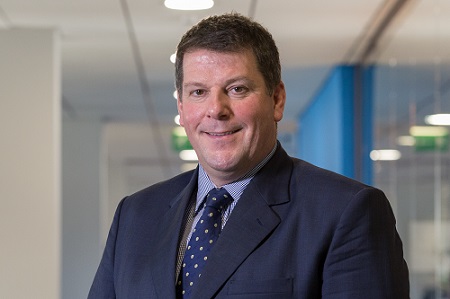Scots tax experts weigh in on the Autumn Statement’s economic impacts for businesses and workers

Susie Walker
The Chancellor’s Autumn Statement of 2023 has been met with a mixed reception from Scottish tax experts, who highlight both positives and concerns in the outlined fiscal plans.
Susie Walker, partner and head of tax at Johnston Carmichael, noted that while the ‘full expensing’ tax break favours larger companies, SMEs and start-ups find little to inspire them.
She also pointed out that “proposals for a new and ‘simplified’ R&D tax relief”, may actually disadvantage smaller businesses.
Ms Walker explained: “These reforms will not be welcomed by the majority of smaller businesses, which will see a significant reduction in R&D tax relief.
“The winners, again, will be the largest companies, which will see an increase in relief and enhanced ability to claim for subcontracted R&D. Whilst the merged scheme has been described as a simplification, much of the potential benefit of a single merged scheme is undone by the need for a parallel scheme for ‘R&D intensive’ SMEs.”
The reduction in National Insurance is seen as a small relief for workers, but it poses an increased burden on employers, especially with the rise in National Living Wage. However, Ms Walker commends the freeze on alcohol duty and business rates relief for the hospitality sector.
Similarly, Becky Bowness, Armstrong Watson’s head of tax, expressed that the permanent change to full expensing and the merging of R&D schemes may not significantly benefit small, family-owned businesses, which were hoping for more robust support. There’s also concern that with the freezing of income tax thresholds, the tax burden is set to rise, despite cuts to National Insurance.
Sharon Blain, tax director at PwC Scotland, acknowledged the measured approach by the Chancellor, with some measures, like full expensing, being welcomed by larger industries.
She said: “Measures impacting Scotland directly were few and far between, save the announcement of an £80 million extension to the Levelling Up Programme to benefit Na h-Eileanan an Iar, Dundee, Argyll and Bute, and the Scottish Borders.
“The move to make full expensing a permanent fixture will be welcome, as will investment commitments to innovation sectors, including life sciences and renewables. Reducing the cost of capital for qualifying plant and machinery plays well for Scotland’s wider industrial and manufacturing sector and tax certainty is always a benefit when businesses are considering long term investment plans.”
Ms Blain continued: “Some of Scotland’s key businesses in the hospitality sector will be happy to hear about the continued freeze in alcohol duty but, with the changes in business rates having no direct impact north of the border, it will be interesting to see how increases in the National Living Wage will be received by the sector, as well as retail and tourism.
“It remains to be seen how this will be addressed in the Scottish Government’s upcoming budget in December.”

Bruce Cartwright
ICAS CEO Bruce Cartwright labeled the statement as being “full of mixed messages”, praising the support for low-income earners but cautioning the pressure on small businesses. ICAS experts provided detailed reactions on the various tax changes, expressing contentment with the reduction in National Insurance but desiring more time for consultation on R&D tax relief reforms.
Regarding HMRC resources and funding, an ICAS spokesperson commented: “The chancellor may have talked about giving HMRC extra resources to help them collect the £5 billion outstanding estimated tax gap over the next 5 years.
“However, this will be largely absorbed by HMRC’s debt collection activity rather than being directed towards improving HMRC service standards.
“Our members need to be able to contact HMRC so that tax is correctly calculated in the first place.”

Vishal Chopra
Vishal Chopra, head of tax at KPMG UK in Scotland, saw the statement as a prelude to a more significant spring budget, with measures like full expensing and minor tax adjustments being steps towards stimulating growth.
Looking forward, Mr Chopra said: “Eyes now shift to Holyrood and the impending Scottish Budget on December 19. Questions will be asked about potential cuts to both personal and business taxes, and whether Scotland will introduce any similar cuts and growth measures in devolved areas.”











